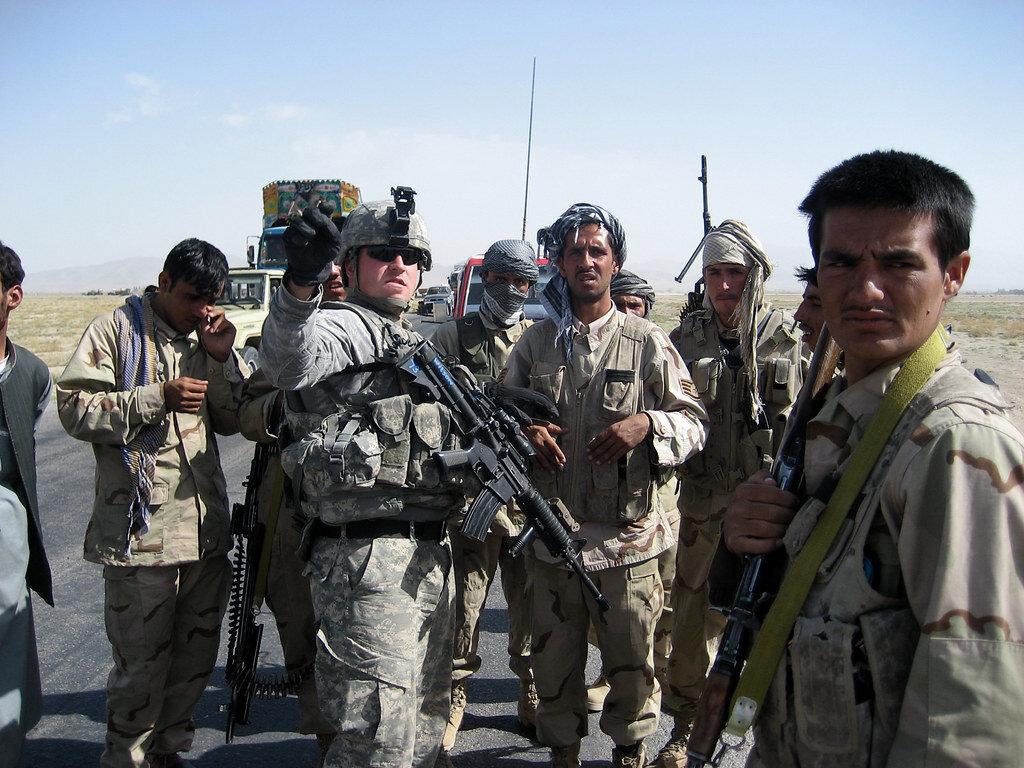War is a big business in the United States. With an annual national budget of $778 billion, according to the United States Armed Forces, the U.S. leads the world in military spending. This number is only projected to rise throughout the upcoming years.
This budget is only second on the list of U.S. spending, coming in directly after Social Security spending. According to the Balance, the military budget consists of many components that influence its large spending habits, however, it could do away with certain aspects of its spending in order to reduce its overall total.
Spending habits alone are not the only questionable tactics used in the military system. Privatized military contracting, PMC, has been on the rise which has been a controversial addition to the military itself. These private military companies provide armed combat and security professionals to the U.S. military for a profit to their company.
While the president has been trying to increase his efforts to reduce military members stationed in the Middle East, the numbers do not include the PMC employees. According to Business Insider, “there are about 9,800 U.S. troops stationed in Afghanistan and more than 26,000 contractors,” which means while the U.S. has less uniformed service members overseas, they do have an incredible amount of civilian contractors. This brings forth an ethical dilemma of whether or not privatized companies should be able to supply guns for hire to the Dept. of Defense.
The change in logistical and strategical planning also contributes to the profitable industries that aggressively lobby for privatizing the military. According to the DOD budget break down in 2015, “44 percent of all federal discretionary spending allotted for defense to private contractors,” which includes not just the private employees being deployed but also the companies that mass produce weaponry and military supplies.
Military budget allotment to private companies is not the only concern. The roles that these PMC contractors hold are one and the same to those of uniformed armed forces members. These private military contractors make an unequal amount of money compared to uniformed military members, which only discourages potential recruits from joining the Armed Forces. As numerous complaints have revealed, PMC do not have to abide by the same standards and strict regulations that govern the military branches.
According to Lawrence Baines, author of the Privatization of America’s Public Institutions: The Story of the American Sellout, “graft and corruption are more prevalent [in contracting] than in the military, where accountability systems are routine.” This means the contractors have less structure and more freedom to not make the proper decisions. It is suspicious to the American public that so little is known about the underlying privatized systems within the U.S. military. Private soldiers far outnumber uniformed military members and the numbers seem to continue to rise rather than fall.
Private contractors have historically been held less accountable for war crimes in comparison to uniformed soldiers. Privatized contractors were used in the socially condemned wartime American run prison of Abu Ghraib, however, no contractors were held accountable for any inhumane tactics, while nearly a dozen service members were sanctioned for punishment.
According to the Center for Constitutional Rights, the U.S. military itself has led studies that concluded that “contractors participated in ‘sadistic, blatant, and wanton criminal abuses.’” Additionally, they explained, “Currently there is no effective U.S. system of contractor accountability and oversight in place,” which creates a breeding ground for abuses of the war system.
At this time, the U.S. and other world-leading countries are being accused of war crimes in Yemen. These war crimes are in connection to the use of private contractors. Yemeni victims are demanding that the U.S. act on what they believe is compelling evidence of injustices done by military contractors “under the direction of the United Arab Emirates,” according to David Brennen at Newsweek. Victims Abdullah Suliman, Abdullah Daubalah, and Salah Muslem Salem, have filed a complaint, under their lawyers’ discretion, with evidence of these alleged crimes. The victims and their lawyers have urged the U.S. and Britain to open investigations on those accused. While it is not explicitly stated what the allegations and evidence are in this particular case, the history of prisoner abuse and torture is said to have a relation to this accusation.





![[Both photos courtesy of sonoma.edu]
Ming-Ting Mike Lee stepped in as the new SSU president following Sakakis resignation in July 2022](https://sonomastatestar.com/wp-content/uploads/2024/04/CC4520AB-22A7-41B2-9F6F-2A2D5F76A28C-1200x1200.jpeg)


























